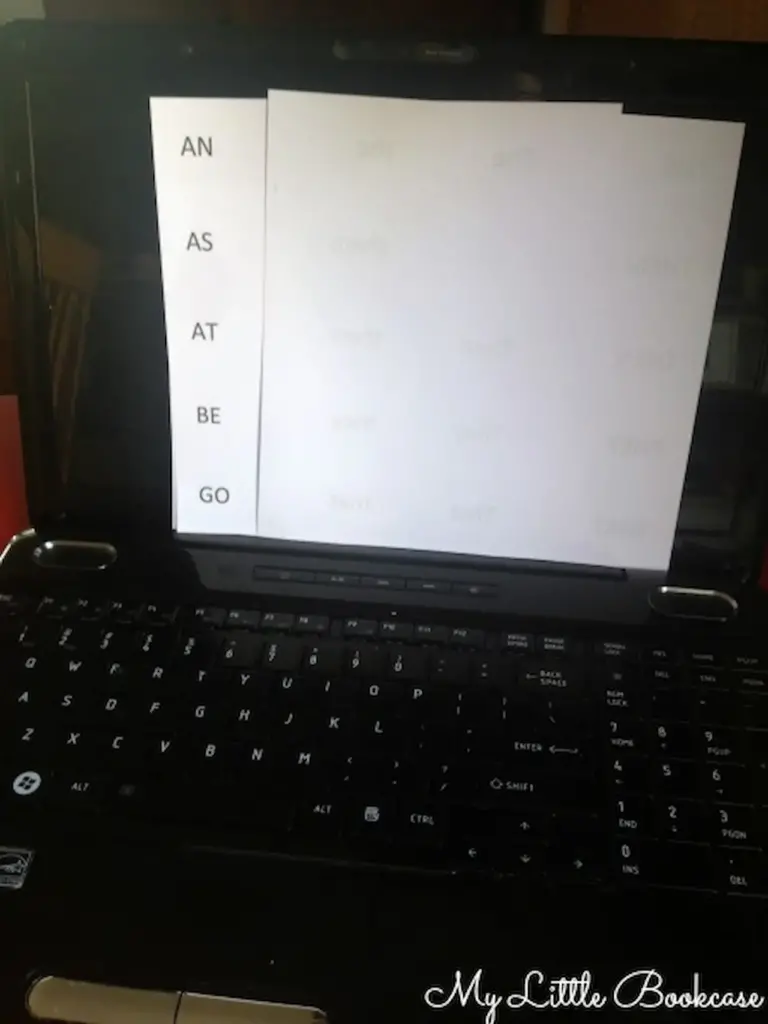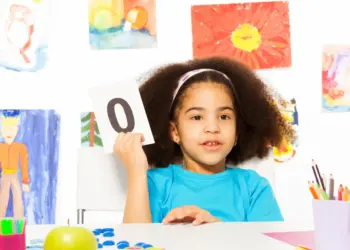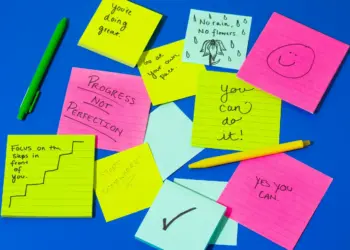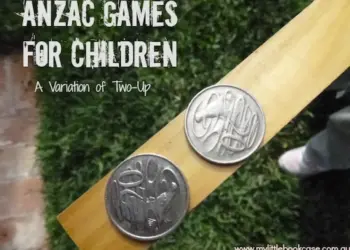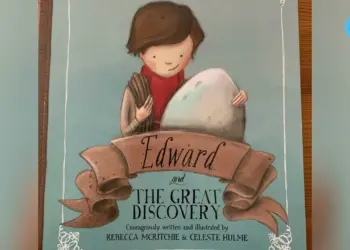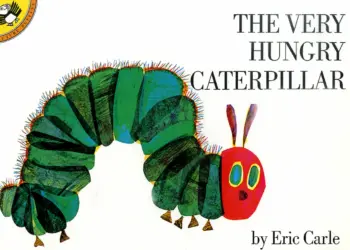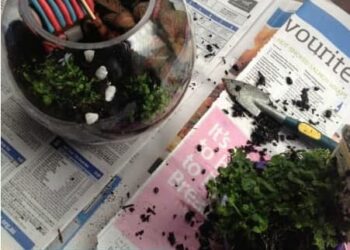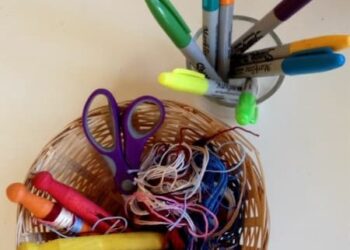Introducing Sight Words Through Office Play
We’ve recently discovered a fun way to incorporate ‘sight words’ (also referred to as ‘high-frequency words’, ‘most used words’, or ‘Magic Words’) into our play.
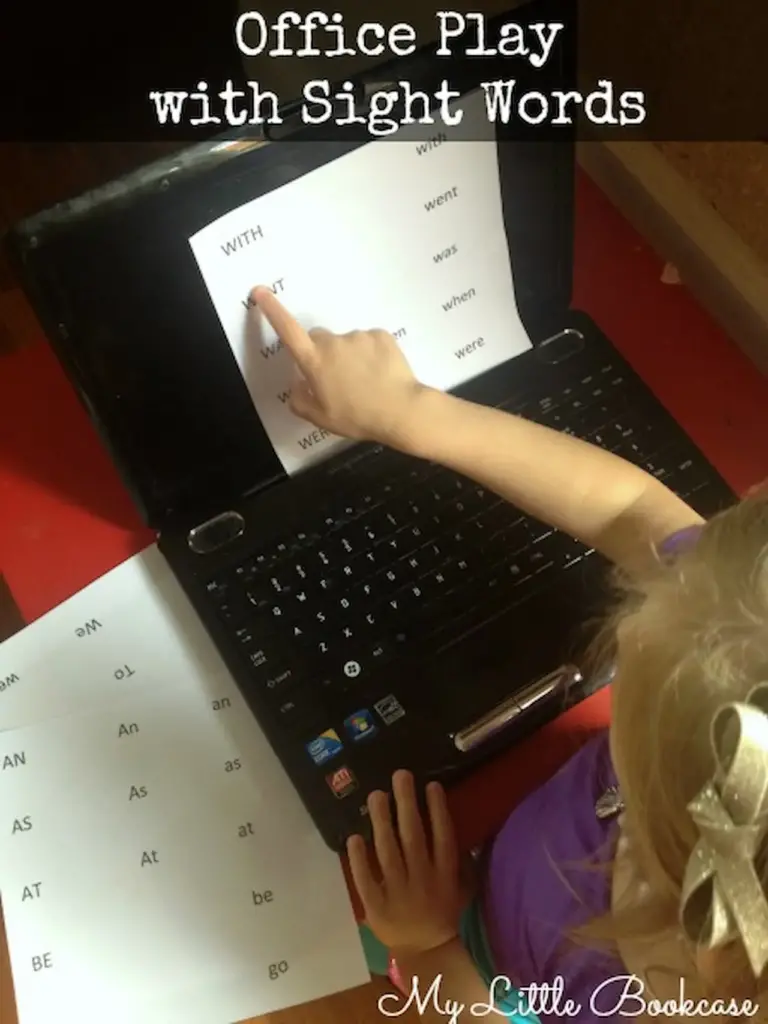
What are ‘Sight Words‘ or ‘High-Frequency Words’?
Even if your child hasn’t begun bringing home ‘sight‘ or ‘high frequency’ words, it is likely that you have already seen or heard about them. As the names suggest, these English words are the most commonly occurring words in everyday texts (accounting for more than 50% of the words we read in a text). Children are often encouraged to learn these particular words as a whole by sight or memory; mainly because the words are seen so regularly in texts and will assist in reading fluency and comprehension, but also because some of the words are more difficult to decode due to their uncommon spelling patterns.
Using ‘sight words‘ or ‘high-frequency words‘ in a play-based setting
Cammy is now five and is currently attending preschool. We have chosen not to explicitly teach her how to read before school through rote learning or structured reading programs, but we are conscious of providing experiences that build literacy foundations through play and exposure to language. We do a lot of reading, we play games with letters and sounds and I’ve recently begun to use words as props in her play.
You may remember that my hard drive crashed last year. I didn’t get a chance to throw it out before the kids took ownership of it. They love to tap away at it, writing stories and sending emails. so I decided to make use of it in a recent invitation to play.
I set up a simple office play space (e.g. pens, stapler, calculator, etc.) at our writing station, opening the laptop and leaning a list of ‘high-frequency words’ against the screen.
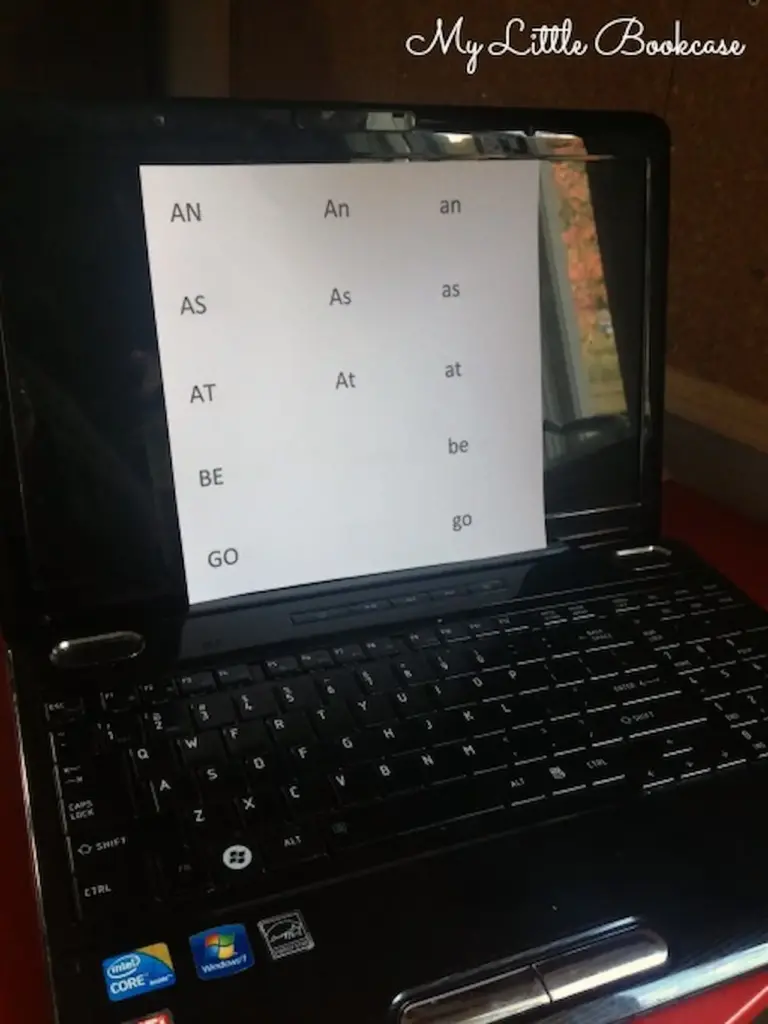
Although the idea of ‘sight words’ is to learn them by memory, I am hoping that Cammy will recognise spelling patterns within the words so I rearranged some of the words to create simple lists for Cammy. I tried to:
- Start with words consisting of two sounds.
- Group words that had similar sounds (first sound or last sound)
- Also, Cammy’s experience with letters is lowercase, but the laptop presents uppercase letters, which is why I presented the list in both formats. You can simply provide the words in one format if it seems too overwhelming for your child.
Printed Letters on a Laptop
This was simply an invitation for her to play with the words. There weren’t any instructions or expectations from me.
Cammy did choose to look for the letters on the laptop. Our laptop is dead, and I think this is a great thing for the purpose of this play. Cammy can’t see what she is typing. She can’t see if she’s made any errors. She can’t print out the words and ask me to correct them. She doesn’t feel any anxiety or pressure to learn words. NONE OF THIS MATTERS at this point!
What matters is that she is seeing the words, deciphering letters, looking for patterns in the words, and all while she is playing.



